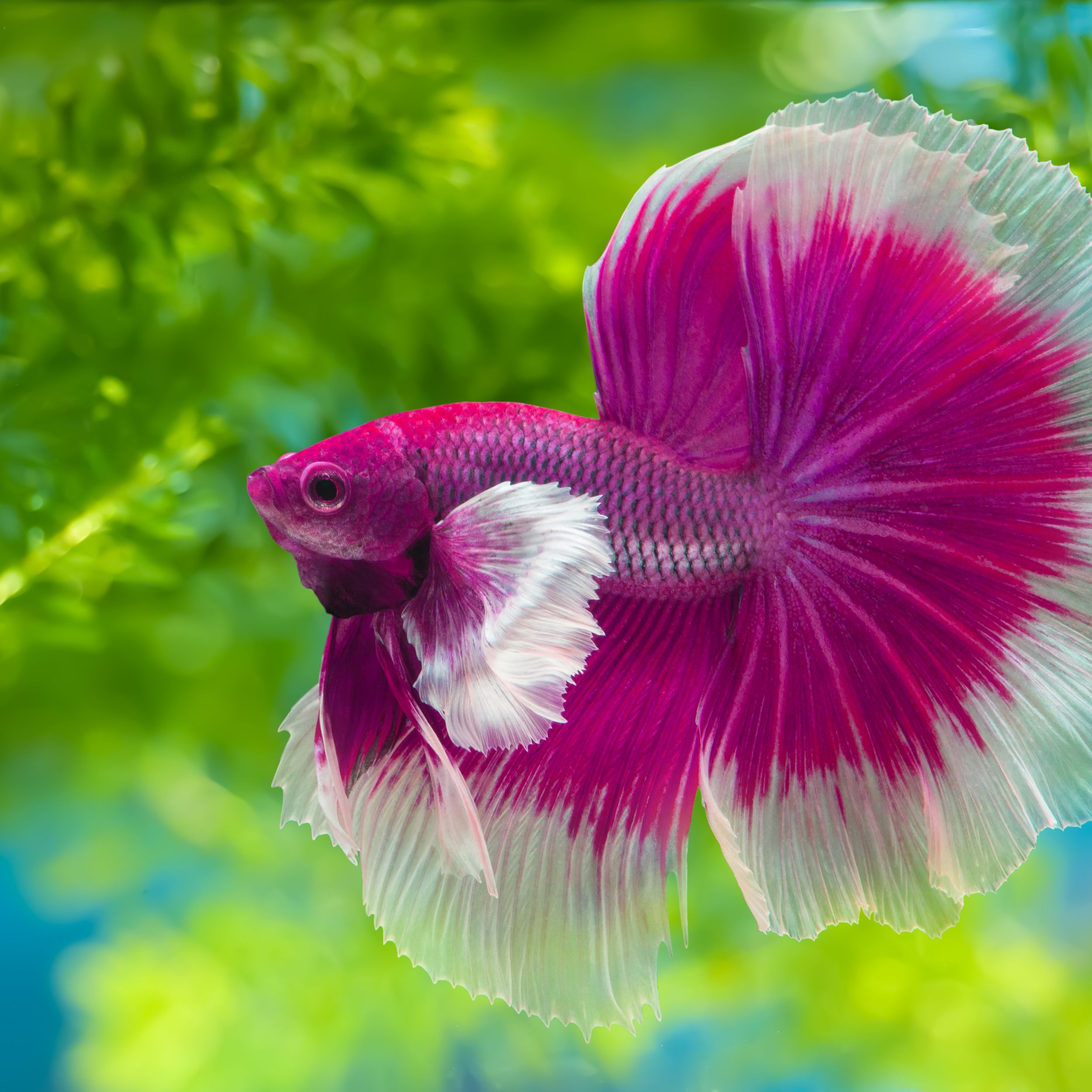Betta Fish Lifespan: How to Ensure Your Betta Lives Longer
Wiki Article
The Ultimate Overview to Betta Fish Treatment: Necessary Tips for Maintaining a Healthy and Growing Aquarium Environment
Effective Betta fish care necessitates a thorough understanding of their special environmental and physical demands. Establishing a suitable aquarium starts with picking the right container size and ensuring ideal water conditions, which are crucial for the health and health of your Betta.Selecting the Right Container
Choosing the proper tank for your Betta fish is critical to ensuring its health and wellness. Bettas grow in environments that resemble their natural habitats, which commonly consist of calm, warm waters. A storage tank dimension of at the very least five gallons is recommended to supply appropriate swimming area, as smaller sized containers can lead to tension and health and wellness problems for these vivid fish.
When choosing a container, consider the tank's form and purification system. A rectangle-shaped tank is better to a bowl, as it supplies extra area for oxygen exchange. Additionally, a reputable filtering system is important to keep water top quality and decrease the regularity of water adjustments (betta fish). Nonetheless, it is essential to pick a filter with a mild circulation, as Bettas are not solid swimmers and may resist strong currents.
Temperature level guideline is an additional vital aspect; Bettas prefer water temperatures between 76 ° F and 82 ° F. Buying a great heater will certainly make certain that the water remains within this array, promoting a healthy and balanced and energetic lifestyle for your Betta. Giving suitable container designs and concealing places will certainly aid minimize tension and motivate all-natural behaviors, further improving your Betta's well-being.
Maintaining Water Top Quality
Preserving optimum water quality is necessary for the wellness and long life of Betta fish. This requires routine surveillance of numerous parameters, including temperature, pH, ammonia, nitrite, and nitrate levels.The pH level should ideally fall between 6.5 and 7.5. Routine testing using a trusted water testing kit can assist guarantee these specifications stay within the ideal ranges. Ammonia and nitrite levels need to constantly be at 0 ppm, as even reduced focus can be harmful to Betta fish. Nitrate degrees need to be kept under 20 ppm to stop long-lasting health and wellness problems.
Normal water modifications are essential to preserving water quality. It is recommended to change 25-50% of the storage tank water weekly, relying on the storage tank size and equipping levels. Making use of a top notch water conditioner can help remove dangerous chemicals from faucet water, guaranteeing a secure atmosphere. Additionally, including a robust purification system can help in preserving water clearness and quality, supplying a much healthier habitat for your Betta fish.
Ideal Feeding Practices
Giving a balanced diet plan is critical for the health and lively pigmentation of Betta fish, as their dietary requirements play a significant duty in their general health. Betta fish are meat-eating by nature, needing a diet plan high in protein. A mix of high-grade pellets, icy or real-time foods such as bloodworms, salt water shrimp, and daphnia can supply the important nutrients they require.Feed your Betta fish a couple of times a day, using just what they can eat within two to three minutes to stop overfeeding and keep water high quality. Overfeeding can result in weight problems and health and wellness problems, including swim bladder illness. It is important to monitor their dietary intake and change section dimensions accordingly.
In addition to protein, a well balanced diet plan needs to include nutrients to promote optimum health. Think about supplementing their diet with premium flakes or pellets especially formulated for Betta fish, as these typically include required additives.

Producing a Suitable Habitat

Water top quality is vital; maintain a temperature in between 76 ° F and 82 ° F, and make sure the pH level varies from 6 - betta fish.5 to 7.5. why not look here Routine water changes of 25-50% per week will certainly aid maintain contaminants away and ensure a stable setting
Integrating plants and hiding spots is crucial, as Betta fish are naturally territorial and appreciate having areas to explore and pull back. Live or silk plants, together with caverns and ornaments, can develop a stimulating environment.
:strip_icc()/siamese-fighting-fish-bettas-1378308-hero-f459084da1414308accde7e21001906c.jpg)
Regular Wellness Checkups
Carrying out regular health and wellness check-ups is crucial for making certain the wellness of Betta fish, as very early discovery of possible concerns can avoid major illness. These examinations need to incorporate a detailed exam of the fish's physical problem, habits, and environmental elements.Begin by observing the Betta fish for any indicators of distress, such as sleepiness, loss of appetite, or uncommon swimming patterns. In addition, evaluate the fins and body for indicators of staining, sores, or fin rot, which can show infections or bloodsuckers. Frequently checking the water quality in the aquarium is similarly important; specifications such as pH, ammonia, nitrite, and nitrate degrees must be preserved within optimal ranges to stop stress and illness.
In addition, take into consideration maintaining a log of wellness observations and water high quality tests. This document can facilitate the identification of trends or reoccuring problems. If any problems are found during the check-up, it is necessary to speak with a vet experienced in water animals. Timely intervention can make a substantial distinction in the healing of your Betta fish, ensuring a long and healthy and balanced life in a properly maintained aquarium atmosphere.
Final Thought
In final thought, successful Betta fish treatment hinges on developing and preserving an optimum fish tank setting. By following these guidelines, aquarists can advertise the well-being and vibrancy of Betta fish, ultimately resulting in a growing aquatic community.Report this wiki page